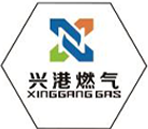
Aug . 07, 2024 16:45
Back to list
Creating an Effective Filter Separator System for Enhanced Data Management and Analysis Optimization
Understanding the Filter Separator Its Importance and Functionality
In various industries, particularly in oil and gas production, water treatment, and chemical processing, the filter separator plays a pivotal role in ensuring the purity and efficiency of processes. This piece of equipment is designed to separate liquids and solids from gases, typically in the context of removing impurities from a gas stream. By understanding the significance of filter separators, we can appreciate their contributions to both operational efficiency and environmental safety.
The Basics of Filter Separators
A filter separator combines filtration and separation functions in a single unit. The main components usually include a filter element, a liquid separator, and a demister or mist eliminator, which helps to capture any liquid droplets that may persist in the gas stream after initial separation.
When a gas mixture enters the filter separator, its velocity is reduced as it passes through the filter media. This allows heavier particles and droplets to be captured effectively, while lighter gas molecules pass through. Once the heavier particulates are separated, they can be drained away, ensuring that the gas extracted is as clean as possible. This process not only enhances the efficiency of downstream equipment but also protects sensitive machinery from damage due to contaminants.
Importance of filter separators in various industries
1. Oil and Gas Industry In oil and gas operations, filter separators are crucial for removing water, sand, and other particulates from hydrocarbon gases. This prevents pipeline corrosion, ensures the quality of products, and reduces the risk of hazardous situations that may arise from unfiltered materials.
filter separator

2. Water Treatment In waste and drinking water treatment facilities, filter separators help in removing suspended solids and other contaminants from water before it undergoes additional treatment processes. Ensuring cleanliness in water sources is vital for public health and regulatory compliance.
3. Chemical Processing The chemical industry often works with various gases that can be contaminated with particulates or other liquids. Filter separators ensure that these gases are adequately purified before being integrated into various chemical reactions, thus improving product yield and quality.
Advantages of Filter Separators
One of the main advantages of using filter separators is the reduction of operational costs. By preventing blockages and damage to downstream equipment caused by contaminants, businesses can save money on maintenance and downtime. Additionally, filter separators enhance the safety of operations by reducing the likelihood of spills or leaks caused by impurities in the gas streams.
Moreover, filter separators can be designed to accommodate various flow rates and pressure conditions, making them versatile and suitable for different applications. They can also be used in conjunction with other separation technologies, allowing for customized solutions tailored to specific operational requirements.
Conclusion
In conclusion, the role of filter separators in industrial applications cannot be overstated. They serve as a vital line of defense against contamination, providing numerous benefits to operations across different sectors. Whether in oil and gas extraction, water treatment, or chemical processing, filter separators are essential for operational efficiency, equipment protection, and environmental safeguarding. As industries continue to evolve, the demand for effective filtration and separation technologies like filter separators will undoubtedly increase, making it critical for companies to invest in systems that ensure the purity and integrity of their processes.
Latest news
-
Safety Valve Spring-Loaded Design Overpressure ProtectionNewsJul.25,2025
-
Precision Voltage Regulator AC5 Accuracy Grade PerformanceNewsJul.25,2025
-
Natural Gas Pressure Regulating Skid Industrial Pipeline ApplicationsNewsJul.25,2025
-
Natural Gas Filter Stainless Steel Mesh Element DesignNewsJul.25,2025
-
Gas Pressure Regulator Valve Direct-Acting Spring-Loaded DesignNewsJul.25,2025
-
Decompression Equipment Multi-Stage Heat Exchange System DesignNewsJul.25,2025

